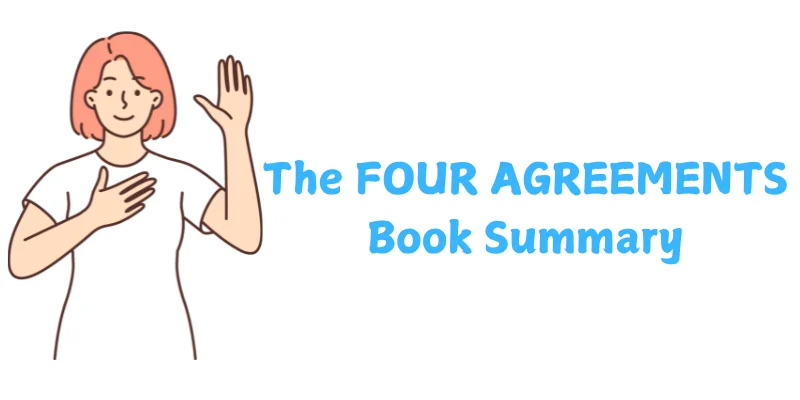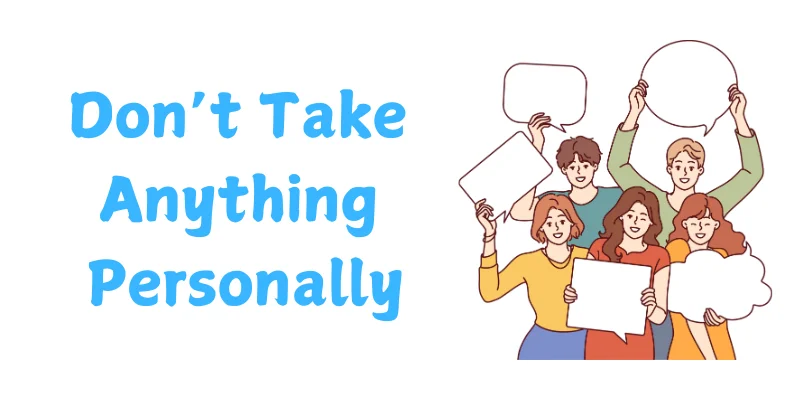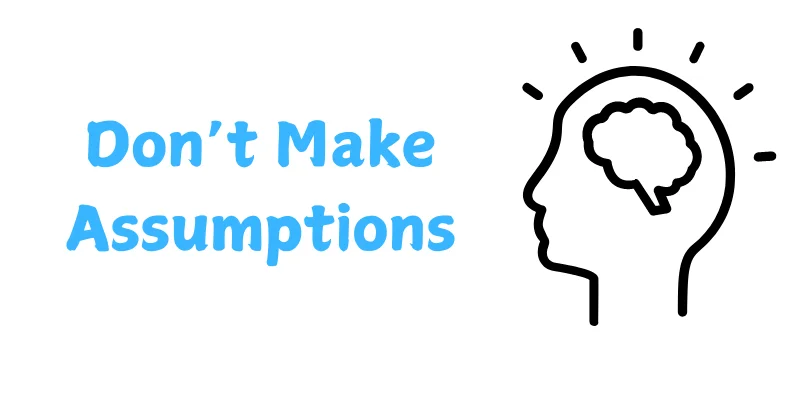The 4 Agreements Book Summary: Practical Tips To Apply Four Agreements
Updated: 09 Sep 2024
563
“The 4 Agreements” book by Don Miguel Ruiz is a simple and powerful guide for living a better life. The book teaches us how to find personal freedom and happiness by following four basic rules, or “agreements.” These four agreements are easy to understand but can change the way we see ourselves and the world around us.

The author, Don Miguel Ruiz, uses old wisdom from the Toltec culture to show us how to break free from negative thoughts and bad habits. By practicing these four agreements, we can stop feeling stuck, find more peace, and live a more honest life.
In the 4 Agreements book summary, I will explain each agreement and how they can help you live a better and happier life. I will describe how I practiced these agreements and what results I achieved. I will also share some useful tips for practicing each of these agreements.
Background: The Toltec Wisdom
Before diving into the book summary of the four agreements, let me tell you where they come from. The author, Don Miguel Ruiz, bases these teachings on Toltec wisdom.
Who were the Toltecs? The Toltecs were an ancient group of people from Mexico who were known for their knowledge about life and the universe.
Ruiz teaches us how their wisdom can help us let go of fear, judgment, and self-doubt. By using these four agreements, we can live with more freedom and happiness.
The idea is to break free from the negative things. I found this concept really interesting because it shows how old ideas can still help us today.
Overview of The 4 Agreements
The 4 agreements are like a guide to help us live a more peaceful and happy life. They are basic, but they touch almost every part of our day-to-day experiences.
Here’s a quick overview of the summary of “the 4 agreements” :
- Be Impeccable with Your Word: This one is all about speaking the truth. When we say things, we should mean them.
- Don’t Take Anything Personally: When people do or say things, it’s usually about them, not about us.
- Don’t Make Assumptions: We all tend to make assumptions. It’s natural. But Ruiz reminds us that assumptions can cause misunderstandings and hurt feelings.
- Always Do Your Best: This one sounds simple, but it’s more than just trying hard. Ruiz explains that “your best” can change depending on how you’re feeling or what’s going on in your life.
Each of these 4 agreements helps us live with less stress and more joy. They might sound simple, but when I began applying them in my life, I noticed big changes. I felt more at peace, and my relationships became easier and happier.
Agreement 1: Be Impeccable with Your Word
The first agreement “Be Impeccable with Your Word” is all about how we use our words. It sounds simple, but it’s actually really powerful.

I learned that what we say has a huge impact, not just on others but also on ourselves. When we use our words in a kind and truthful way, it changes how people see us and how we see ourselves.
1. What does “impeccable” mean?
Ruiz explains that being impeccable means being honest, clear, and not harmful with your words. It’s about speaking with integrity.
I found this helpful because it reminded me to be more mindful of the things I say, whether to myself or to others.
2. Why words matter
Ruiz explains that words have power. They can create or destroy. If we’re negative or harsh with our words, it hurts us and those around us. I realized that we sometimes say things without thinking and how it can affect the mood of others.
Practicing this agreement made me more aware of what I was saying, and I noticed how much better my conversations became.
3. How I started using this agreement
I decided to focus on being more positive and careful with my words. This wasn’t easy, but I felt a lot lighter when I did.
I also started talking to myself with more kindness. Instead of saying things like “I can’t” or “I’m not good enough,” I started saying “I’ll try” or “I can improve.” This small change had a big impact on my confidence.
4. Tips for practicing this agreement
Here are some practicing tips:-
- Speak the truth: Always say what you really mean. Avoid lying or exaggerating.
- Avoid gossip: Don’t talk badly about others. It only spreads negativity.
- Be kind to yourself: Watch how you speak to yourself. Use positive and encouraging words.
By being impeccable with your words, you will begin to feel more at peace with yourself and create better connections with others.
Agreement 2: Don’t Take Anything Personally
The second agreement, Don’t Take Anything Personally, was a game-changer for me. It taught me that what others say and do is often about them, not about me.

I used to take comments or actions to heart. It made me feel hurt and upset. But understanding this agreement helped me let go of that pain.
1. Understanding this agreement
Ruiz explains that everyone has their own experiences and feelings. When people react or say things, it often comes from their own fears or insecurities. When someone is rude or critical, it usually reflects his struggles.
2. How this agreement changed my perspective
When I started practicing this agreement, I noticed a shift in my feelings. I began to feel less hurt by negative comments. For example, if a friend seemed upset and snapped at me, I reminded myself it was not about me. They might have had a bad day or been stressed. This helped me respond with kindness instead of taking it personally.
3. Letting go of others’ opinions
Before learning this agreement, I worried a lot about what others thought of me. I would try to please everyone, which left me feeling exhausted. Now, I focus more on how I see myself rather than on others’ opinions. I found this made me happier and more confident.
4. Tips for practicing this agreement
Here are some useful tips for practicing this law:-
- Observe your feelings: When someone says something hurtful, take a moment to think. Ask yourself if it really reflects who you are.
- Practice empathy: Try to understand that people may be struggling. Their actions often come from their own issues.
- Focus on yourself: Remind yourself that your worth doesn’t depend on what others think or say.
This agreement helped me build better relationships because I stopped reacting to every little thing.
Agreement 3: Don’t Make Assumptions
We all make assumptions, often without realizing it. This agreement reminds us that making assumptions can lead to misunderstandings and hurt feelings.

I found that when I started to pay attention to this, it changed how I interacted with others.
1. Understanding the impact of assumptions
Ruiz explains that we often guess what others think or feel. We create stories in our heads without asking for the truth. I used to assume that my friends knew how I felt or what I wanted. But this only caused confusion and frustration. When I learned to stop making assumptions, my communication improved.
2. The importance of clear communication
One thing that stood out to me was how important it is to ask questions. If I’m unsure about something, I now try to clarify instead of assuming. For example, if a friend didn’t invite me to an event, I used to think they didn’t like me. But now, I ask them directly instead of jumping to conclusions. This simple change helped me avoid unnecessary hurt and stress.
3. How this agreement improved my relationships
By practicing this agreement, I became more open in my conversations. I started to express my thoughts and feelings clearly. This way, others knew what I meant. I also encouraged my friends to share their feelings with me. This created a stronger bond and helped us understand each other better.
4. Tips for practicing this agreement
Here are some tips for practicing this law:-
- Ask questions: When unsure about something, don’t hesitate to ask. It’s better to know the truth than to guess.
- Listen carefully: Pay attention to what others say. Sometimes, they give us clues about how they feel.
- Avoid jumping to conclusions: If you find yourself making assumptions, take a step back. Think about how you can clarify instead.
This agreement has truly helped me communicate better and enjoy more meaningful connections.
Agreement 4: Always Do Your Best
The fourth agreement, Always Do Your Best, is one of my favorites. It reminds us that our “best” can change from day to day.

Sometimes, we may feel tired or stressed, and that’s okay. Ruiz encourages us to give our best effort, no matter the circumstances.
1. Understanding what “doing your best” means
At first, I thought “doing your best” meant always being perfect. But Ruiz explains that our best can look different depending on how we feel. On a good day, my best might be more productive and energetic. On a tough day, my best might be simply getting out of bed and doing my regular tasks. This realization helped me let go of the pressure to be perfect.
2. Letting go of self-judgment
Before learning this agreement, I often criticized myself when I didn’t meet my own high expectations. I felt guilty if I didn’t finish everything on my to-do list. But now, I focus on what I can do at that moment. If I’m doing my best, I can feel proud of my efforts, even if the results aren’t perfect.
3. How this agreement fosters self-compassion
By learning this law, you learn to stop comparing yourself to others. Instead, You focus on your own progress.
| For example: |
|---|
if you didn’t complete a project as quickly as you wanted, you should remind yourself that you were doing your best with the time and energy you had. |
4. Tips for practicing this agreement:
- Be mindful of your limits: Recognize when you need to take a break or when you’re feeling overwhelmed.
- Celebrate small victories: No matter how small, acknowledge your efforts and achievements.
- Avoid comparing yourself to others: Remember that everyone has different strengths and challenges.
This agreement helped me find joy in my efforts, regardless of the outcome. It has truly changed how I view success and personal growth.
Famous Quotes From The Book
Here are some of the famous quotes from the book:-
Find the courage to ask questions and to express what you really want.”
“You can only be you when you do your best.”
“Respect yourself, love yourself, and whatever you do, do it because you want to do it.”
“Whatever happens around you, don’t take it personally… Nothing other people do is because of you.”
When you are immune to the opinions and actions of others, you won’t be the victim of needless suffering.”
Conclusion: Embracing The 4 Agreements
In conclusion, practicing The 4 Agreements has been a transformative experience for me. Each agreement offers simple yet profound wisdom that helps us live a happier and more fulfilling life.
Here’s a quick recap of the agreements:
- Be Impeccable with Your Word – Speak truthfully and kindly.
- Don’t Take Anything Personally – Remember that others’ actions reflect their own feelings.
- Don’t Make Assumptions – Communicate openly and clarify doubts.
- Always Do Your Best – Give your best effort, no matter the circumstances.
These agreements remind us to take responsibility for our words, thoughts, and actions. They help us build better relationships with ourselves and others. I’ve noticed that when I apply these principles, I feel more confident and at peace. I also see positive changes in how I interact with the people around me.
FAQs
Here are some FAQs about the Four Agreements book:-
What is The Four Agreements synopsis?
The Four Agreements by Don Miguel Ruiz is a self-help book based on ancient Toltec wisdom. It offers four simple yet powerful principles to live by:
- Be impeccable with your word.
- Don’t take anything personally.
- Don’t make assumptions.
- Always do your best.
These agreements aim to help people break free from limiting beliefs and create a life filled with peace, happiness, and freedom.
What are the key takeaways of The Four Agreements?
The key takeaways are:
- Words matter: Speak kindly and truthfully to yourself and others.
- Don’t take things personally: Other people’s actions are about them, not you.
- Avoid assumptions: Clear communication helps avoid misunderstandings.
- Do your best: Always give your best effort, but don’t strive for perfection.
Which is the most important of The Four Agreements?
While all four agreements are important, many people believe that “Be Impeccable with Your Word” is the most essential. It’s the foundation for the other agreements because words have the power to shape our reality, relationships, and self-esteem. Speaking with integrity helps us live honestly and fosters healthier connections with others.
Please Write Your Comments